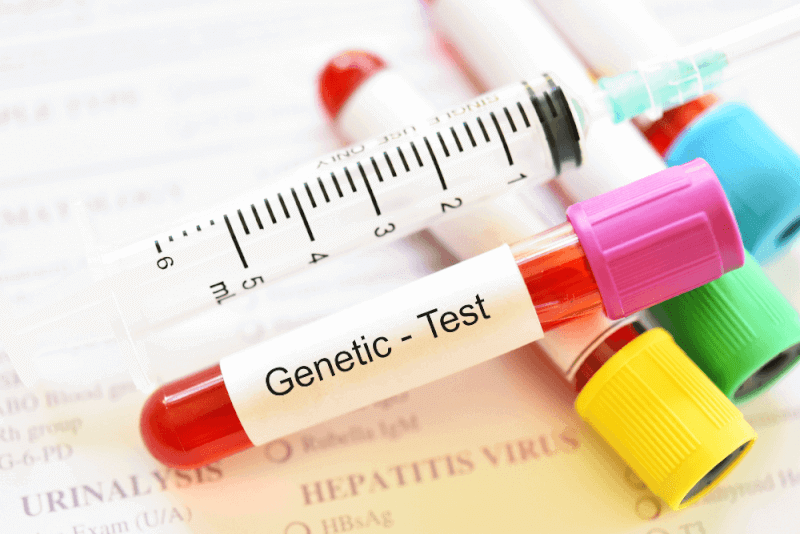30-Second Summary
- Genetic testing involves analyzing DNA, the chemical database that carries instructions for the body's functions. It can reveal changes in genes that may lead to disease.
- If a genetic disorder is known to exist in a family, it's recommended to discuss the decision to undergo testing with family members to understand their potential reactions to the results.
- Genetic tests play a vital role in identifying disease risk, screening, and medical treatment decisions.
- The time it takes to receive genetic test results varies depending on the test applied and the healthcare provider.
What Is Genetic Testing?
Genetic testing involves analyzing DNA, the chemical database that carries instructions for the body’s functions. It can reveal changes in genes that may cause diseases.
While genetic tests provide important information for diagnosing, treating, and preventing diseases, they also have some limitations. In particular, finding a mutation in a healthy individual does not necessarily mean the person will develop the disease.
Although genetic tests may not always lead to a diagnosis, genome sequencing may be performed when a genetic cause is suspected. These tests, which analyze DNA samples, help identify genetic variants that may be related to health. These tests are usually limited to examining the parts of DNA known as exomes, which code for proteins.
Types of Genetic Testing
The reason there are different types of genetic tests is that they are used for various purposes. Types of genetic testing include:
Diagnostic Genetic Tests
These tests are used to detect mutated genes. They are especially helpful when symptoms are present and are used to identify genetic mutations and diagnose diseases. For example, they are used to diagnose conditions such as fibrosis and Huntington's disease.
Carrier Testing
If there is a family history of a genetic condition, carrier testing can determine whether a person carries a gene mutation before symptoms appear. It is especially recommended before having children. Diseases that can be detected through carrier testing include Mediterranean anemia.
Pharmacogenetic Testing
This type of genetic test is used to determine the appropriate medication and dosage for treating a specific condition.
Prenatal Genetic Testing
Genetic tests performed on the fetus during pregnancy can detect conditions such as Down syndrome before birth. These tests are generally conducted by analyzing blood markers or through invasive procedures like amniocentesis. A newer method called cell-free DNA testing involves analyzing the baby’s DNA through a blood test performed on the mother.
Newborn Screening Tests
This is the most commonly performed type of genetic testing. It detects genetic and metabolic abnormalities in newborns that may cause specific conditions. These tests are extremely important because they allow for early treatment of diseases.
Cancer Genetic Testing
These genetic tests are performed to determine the genetic characteristics of tumors in cancer patients. They allow for treatment planning, the development of targeted drugs, and the identification of other therapeutic options.
How Is Genetic Testing Performed?
Before undergoing genetic testing, it is important to gather as much information as possible about the family. It is also recommended to consult a specialist to better understand potential risks. During this consultation, all questions regarding genetic testing should be asked.
If the test is being performed due to a known genetic disorder in the family, it is recommended to discuss the decision with family members. This helps anticipate how they may react to the test results.
Depending on the type of test, samples may be collected from blood, skin, amniotic fluid, or other tissues and sent to a laboratory for analysis.
- For blood-based tests, a sample is collected by inserting a needle into a vein in the arm. For newborn screening, a heel prick is used to collect the sample.
- For cheek swab tests, a sample is collected from inside the cheek using a cotton swab.
- For amniocentesis, a small amount of amniotic fluid is collected by inserting a thin, hollow needle through the abdominal wall and uterus during pregnancy.
- For chorionic villus sampling, a tissue sample is taken from the placenta for genetic testing before birth. Depending on the case, the sample is collected either through the cervix using a catheter or through the abdominal wall using a thin needle.
Why Is Genetic Testing Done?
Genetic testing plays a vital role in identifying the risk of developing certain diseases, in screening, and in guiding medical treatments. Different types of genetic tests are conducted for different reasons. The benefits of genetic testing include the following:
- Newborn screenings help detect diseases early in life, allowing for prompt treatment.
- Diagnostic tests are used to identify specific genetic or chromosomal conditions. They are often used to confirm a diagnosis based on physical symptoms.
- Carrier tests help couples planning to have children understand the risk of passing on a genetic disorder to their offspring.
- Prenatal tests can detect possible genetic disorders in a baby and help ensure timely medical decisions, including early delivery if necessary.
- Forensic tests are used to identify individuals for legal purposes.
Genetic Test Results
The time it takes to receive the results of a genetic test varies depending on the type of test and the healthcare provider. Therefore, it is important to consult a doctor about when results can be expected.
Positive Results
A positive result indicates that a genetic change has been identified. The next steps depend on the reason for testing.
If the goal was:
- To diagnose a specific condition, a positive result can help guide treatment planning.
- In children, a positive result can indicate the risk of developing a disease. The results also play a role in family planning for those who wish to have children.
- A positive result indicates a risk of developing the disease but does not guarantee that the disease will occur.
Negative Results
A negative result means no mutation was found in the tested genes. However, this does not guarantee the absence of a disorder. Furthermore, the absence of a mutation does not mean there is no risk of developing the disease.
Uncertain Results
In some cases, genetic tests do not provide useful information about a particular gene. Everyone has variations in how their genes appear, and most of these differences do not cause disease. However, in some cases, it may be unclear whether a variation is harmless or disease-causing. These are called variants of uncertain significance. Follow-up testing or periodic monitoring may be required to clarify these cases over time.







